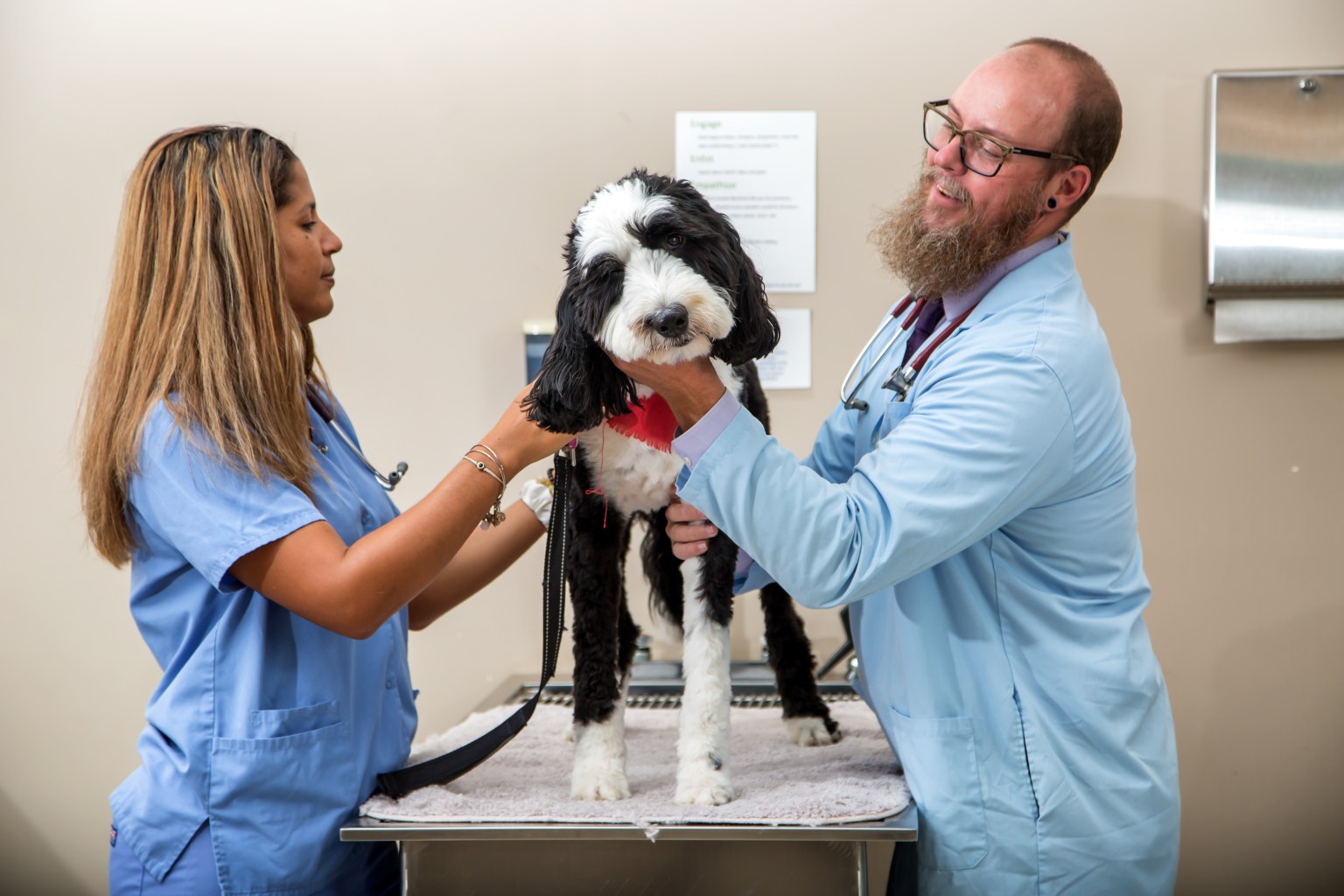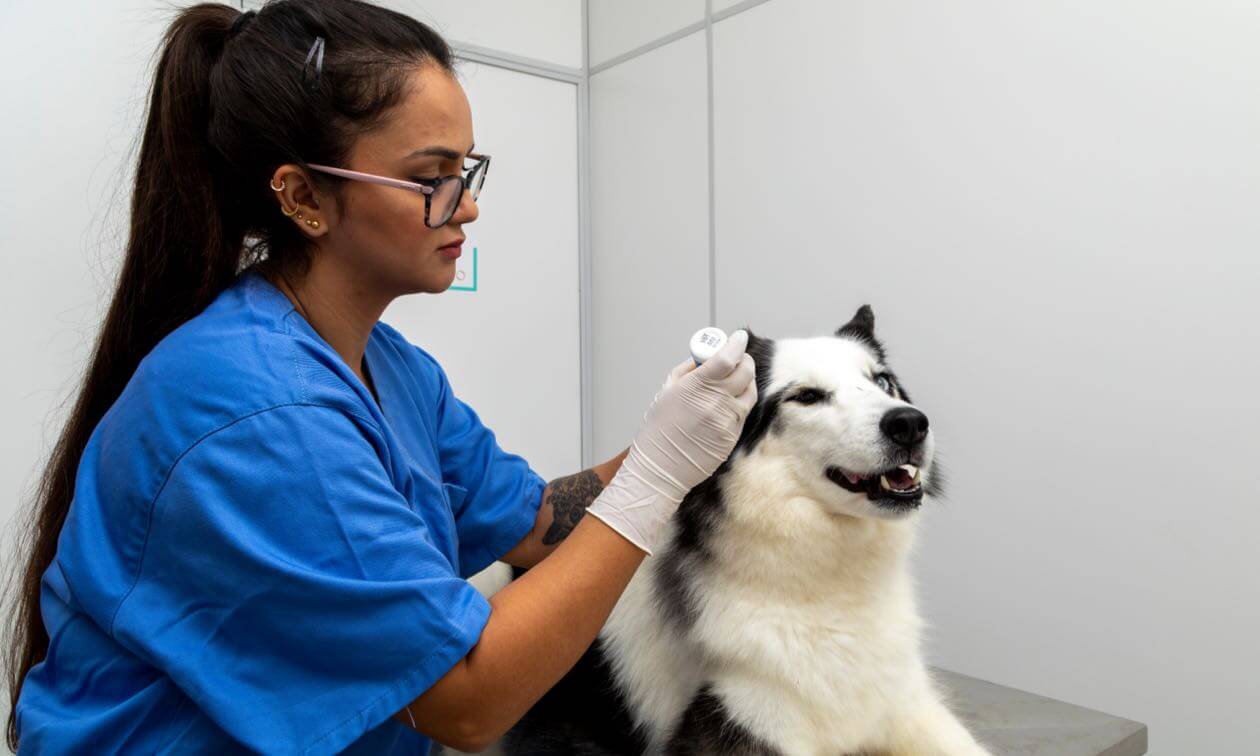Thorough guide to Veterinary Oncology Services available in Los Angeles
Comprehensive Guide to the Providers Provided by a Vet Oncologist
Veterinary oncology encompasses a vast range of solutions targeted at treating and identifying cancer in family pets. Board Certified Veterinary Oncologist. Oncologists use sophisticated analysis techniques and supply various therapy options customized to each animal's demands. They likewise focus on supportive care and give important sources for animal proprietors. Understanding these services is necessary for making educated decisions. What specific facets of vet oncology can especially impact a pet dog's treatment trip?
Recognizing Veterinary Oncology
Veterinary oncology is a customized area focused on dealing with and identifying cancer cells in animals. This technique incorporates a large range of methods, from medical treatments such as chemotherapy and immunotherapy to surgical interventions focused on getting rid of growths. Veterinary oncologists are educated to identify the unique indications of cancer in different varieties, allowing them to customize therapy plans to specific patients.
In enhancement to typical treatments, vet oncology highlights supportive treatment, which plays a necessary function in improving the lifestyle for damaged animals. This consists of pain monitoring, dietary assistance, and palliative treatment alternatives. Cooperation with pet dog proprietors is crucial, as they are integral to decision-making regarding their pets' treatment courses. As study advances, vet oncology proceeds to advance, supplying brand-new hope and boosted results for family pets identified with cancer. Overall, this area is basic for attending to the complexities of cancer in companion pets.
Advanced Diagnostic Techniques
Advanced analysis methods play an important role in vet oncology, supplying important insights right into the existence and extent of cancer in pets. Imaging techniques such as ultrasound, CT scans, and MRI are commonly used to picture tumors and assess their features. Furthermore, biopsy procedures are very important for acquiring tissue examples, permitting definitive medical diagnosis and tailored therapy plans.
Imaging Modalities Utilized
Imaging methods play an important role in the diagnosis and management of cancer in pets. Veterinary oncologists utilize different advanced imaging techniques to assess growth transition, size, and existence. Radiography, or X-rays, offers a preliminary sight of bone and chest problems, while ultrasound provides real-time imaging of soft tissues, enabling comprehensive evaluation of interior body organs. Computed tomography (CT) improves visualization of intricate anatomical frameworks and enables 3D restorations, assisting in accurate growth localization. Magnetic vibration imaging (MRI) is indispensable for soft cells differentiation, especially in mind lumps. Additionally, nuclear medicine methods such as positron exhaust tomography (PET DOG) help determine metabolic task within lumps. Jointly, these modalities enhance diagnostic accuracy, assisting reliable therapy strategies for oncological clients.
Biopsy Treatments Clarified
Adhering to the initial assessment with imaging techniques, acquiring a conclusive medical diagnosis usually requires tissue sampling through biopsy procedures. Vet oncologists utilize various biopsy techniques based on the lump's area and characteristics. Fine needle aspiration (FNA) is a minimally invasive method that removes cells for cytological examination, perfect for surface masses. Core needle biopsies provide bigger cells examples and are valuable for much deeper growths, allowing for histopathological evaluation. Surgical biopsies include excising a section or the entire tumor, assisting in complete evaluation. These procedures not just validate the existence of cancer but also aid establish its type and grade, guiding therapy choices. Each biopsy method is selected carefully to stabilize analysis accuracy with patient safety and security and convenience.
Therapy Choices for Cancer in Pet dogs
When an animal is detected with cancer, a selection of treatment options end up being available to assist enhance and manage the illness lifestyle. Veterinary oncologists typically suggest a multidisciplinary approach tailored to the specific family pet's needs, which may consist of surgery, radiation treatment, immunotherapy, or alternative treatments.
Surgical procedure is typically used to remove growths and damaged tissues, potentially bring about total remission in many cases. Radiation therapy aims to destroy and target cancer cells, decreasing growth dimension and minimizing signs and symptoms - Pet Cancer Surgery. Immunotherapy harnesses the animal's body immune system to eliminate cancer better, while different treatments could include acupuncture or herbal supplements to support overall health and wellness
Each therapy choice brings its very own advantages and threats, and vet oncologists function very closely with pet owners to design a complete strategy that straightens with the pet dog's details diagnosis and the proprietor's dreams. The utmost objective is to enhance the animal's comfort and lifestyle throughout their cancer journey.
Chemotherapy for Animals
Radiation treatment is a typical therapy choice for animals identified with cancer and is frequently used in conjunction with other treatments laid out by vet oncologists. This treatment involves the administration of details medicines created to target and ruin cancer cells, thereby reducing lump dimension and stopping the spread of the disease. Vet oncologists customize chemotherapy protocols based upon the kind of cancer, the pet's Related Site total health and wellness, and the desired therapy result.
Negative effects can take place, as these medications may additionally influence healthy cells. Usual responses include nausea or vomiting, vomiting, and temporary adjustments in hunger - Veterinary Oncologist. Vet oncologists are geared up to manage these negative effects efficiently, making certain the family pet's comfort throughout the treatment procedure. Routine surveillance with blood examinations and follow-up visits is vital to examine the pet's feedback to chemotherapy and make needed adjustments. Inevitably, chemotherapy can supply significant advantages, enhancing the lifestyle for animals encountering cancer diagnoses

Radiation Treatment in Veterinary Medication
Radiation therapy acts as a reliable therapy option for pets detected with local tumors, supplying a targeted technique to cancer monitoring. This method utilizes high-energy radiation to harm the DNA of cancer cells, preventing their ability to multiply. It is especially useful for lumps that are not open to medical removal or for situations where surgery might not be feasible as a result of the tumor's place.
Veterinary oncologists tailor radiation methods based upon lump type, place, and size, in addition to the pet dog's overall health and wellness. Therapy can be delivered by means of exterior beam radiation or brachytherapy, each with unique benefits. Generally, several sessions are called for to take full advantage of performance while reducing adverse effects.
Pets may experience short-term responses such as skin inflammation, the total purpose is to look at here now reduce tumors and reduce symptoms, eventually enhancing the family pet's diagnosis and high quality of life. Appropriately, radiation treatment plays a necessary duty in thorough cancer treatment.
Palliative Treatment and Top Quality of Life
Palliative treatment in vet oncology concentrates on improving the high quality of that site life for family pets dealing with terminal diseases, guaranteeing comfort and dignity in their last days. This specialized strategy focuses on discomfort administration, symptom control, and emotional assistance. Vet oncologists examine each animal's individual needs, customizing treatments to minimize discomfort and improve total wellness.
Methods may consist of providing medications for pain alleviation, handling nausea, and addressing various other stressful symptoms. In addition, dietary support is often provided to keep stamina and boost cravings. The psychological aspect of palliative care is similarly essential; creating a tranquil environment aids decrease anxiety for both pet dog and owner.
Inevitably, the goal of palliative care is to permit animals to appreciate their staying time with as much pleasure and dignity as feasible. By concentrating on comfort and top quality of life, vet oncologists play a necessary duty in ensuring that pets and their families browse this tough trip with concern and understanding.
Assistance for Family Pet Owners Throughout Therapy

Psychological Guidance for Proprietors
Charting the emotional landscape throughout a pet's cancer cells therapy can be an overwhelming experience for proprietors. The uncertainty bordering diagnosis and prognosis can lead to feelings of unhappiness, vulnerability, and anxiety. Veterinary oncologists identify the importance of psychological assistance and commonly provide assistance to aid proprietors navigate this tough trip. Interaction is important; going over therapy options and potential results can relieve some fears. Additionally, using confidence that psychological responses are valid fosters a helpful atmosphere. Several oncology facilities may likewise suggest assistance teams or therapy solutions customized for pet dog proprietors, facilitating common experiences. Encouraging owners to prioritize self-care during this time is important, as their emotional wellness directly influences their pet's comfort and overall treatment experience.

Resources and Educational Materials
Guiding via the complexities of an animal's cancer cells therapy can be daunting for owners, making accessibility to trusted sources and educational products vital. Veterinary oncologists typically offer an array of handouts, sales brochures, and online materials that explain therapy choices, potential adverse effects, and care approaches. These resources help debunk the process and encourage pet dog owners to make enlightened decisions. In addition, numerous oncology clinics use access to sustain teams and online forums where proprietors can get in touch with others encountering similar obstacles, fostering a feeling of community. Educational webinars and workshops carried out by vet professionals additionally enhance understanding, making sure that proprietors are well-equipped to browse their pet dog's journey with cancer cells treatment with confidence and expertise.
Frequently Asked Concerns
Just How Can I Prepare My Pet for a Veterinary Oncology Browse Through?
Preparing an animal for a vet oncology visit includes event clinical records, noting signs, and making certain the pet fits. A tranquil disposition and familiar products can aid reduce anxiety during the consultation.
What Are the Indicators My Pet May Have Cancer?
Indications that a family pet might have cancer cells consist of unexplained weight loss, persistent vomiting or diarrhea, unusual lumps or swellings, lethargy, modifications in cravings, trouble breathing, and changes in actions. Motivate vet focus is important.
How Can I Assistance My Pet Dog Psychologically Throughout Therapy?
Sustaining a pet dog psychologically throughout therapy includes offering comfort, maintaining routines, supplying mild love, and making sure a calm atmosphere. Taking part in quiet play and normal friendship assists minimize tension and promotes a complacency.
Exist Different Therapies for Pets With Cancer cells?
Different therapies for pets with cancer cells include acupuncture, herbal therapies, and dietary support. These strategies may match standard therapies, promoting general health. Consulting with a veterinarian is crucial for safe and efficient integration of alternate treatments.
What Expenses Should I Expect for Veterinary Oncology Providers?
The anticipated prices for veterinary oncology services can differ considerably, commonly influenced by diagnostics, therapies, and ongoing treatment. Pet dog proprietors need to get ready for expenses ranging from assessments to specialized therapies, mirroring the complexity of cancer cells monitoring.
Cooperation with pet proprietors is important, as they are important to decision-making regarding their family pets' treatment paths. Each treatment option carries its own advantages and risks, and vet oncologists work closely with family pet proprietors to design a complete plan that lines up with the animal's specific diagnosis and the owner's wishes. Family pets might experience temporary responses such as skin irritability, the overall aim is to shrink growths and ease signs and symptoms, ultimately improving the family pet's prognosis and high quality of life. Support for pet dog owners during treatment is important in guiding via the emotional obstacles associated with a pet dog's cancer cells medical diagnosis. Preparing a family pet for a vet oncology check out includes celebration medical documents, keeping in mind symptoms, and making certain the family pet is comfortable.